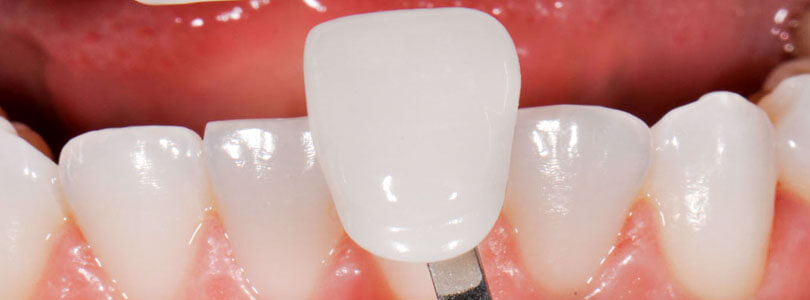
Get a perfect smile with dental veneers
In case of smaller imperfections, damages and colour corrections, ask for porcelain veneers. This is an easy and quick way to reach the aesthetic teeth you wanted. Get to know more about dental veneers!
What are the advantages of porcelain veneers?
- excellent aesthetics can be reached so your smile will be nicer
- shape, size, colour and – up to a certain extent -position of front teeth can be changed
- they do not contain metals which also contribute to more aesthetic results
- colour and size can be perfectly adjusted to the patient’s own teeth
- teeth need to be filed down only in a small compass (approx. 0.5 mm)
- they are specifically thin so there is no discomfort in wearing veneers
- thanks to this method the patient can keep his/her own teeth
- provides a long-term solution for several dental problems
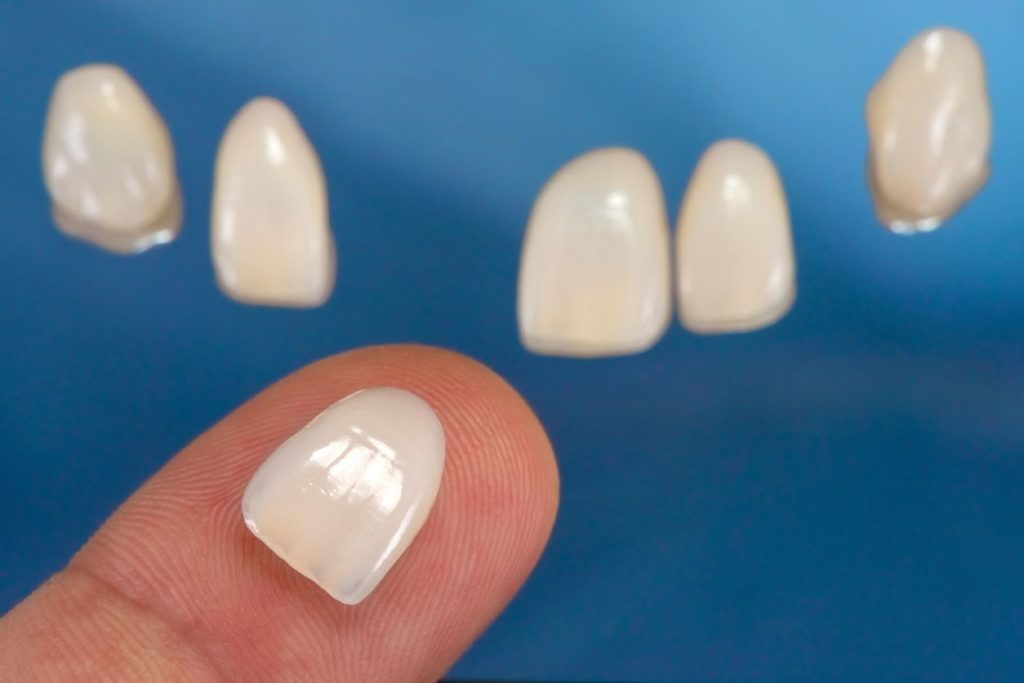
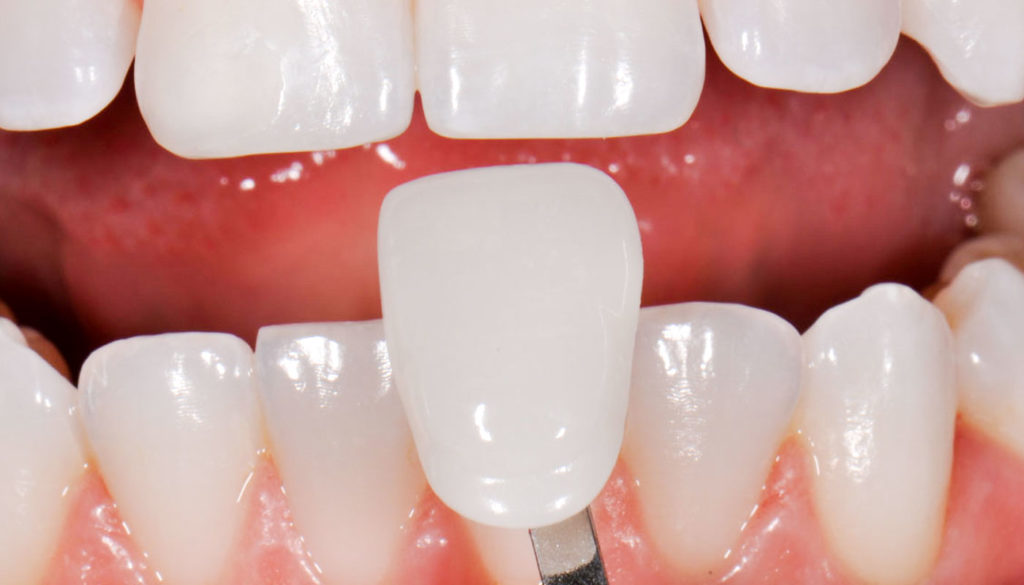
What is a porcelain veneer?
Porcelain veneer is a thin, tooth-colour material restoration which covers the outer surface of the teeth.
It can be made of different materials so there is porcelain veneer and composite veneer, as well. Our clinic uses porcelain veneers because of high quality and long-term applicability. We make dental veneers quickly with high quality standards at our in-house dental technical laboratory by experienced and trained technicians.
Have you heard of e.max veneers?
The newest and strongest type of dental veneers is e.max, which is also available in our dental clinic. It is the most natural-looking veneer on the dental market currently. It is made from ceramic (porcelain) material, so it is metal-free and hypoallergenic. With no metal substructure or core material, the light refraction and reflection of the material is more closely mimic that of natural tooth structure.
When do we recommend veneers?
If the tooth is healthy, however the aesthetics are not adequate, or there is discolouration which cannot be treated with teeth whitening; we recommend applying dental veneers. In case of teeth which cannot be saved, are devitalized or damaged severely so applying veneers is not possible, our dentists do not suggest them.
We usually recommend veneers in cases of:
- blemishes of the enamel, cavities, discolouration
- trauma: breakage of the incisor edges
- discoloured, root canal treated teeth
- correction of teeth out of the ideal axis
- diastema, gap between teeth
We do not recommend veneers in cases of:
- serious damage of front teeth – crowns are more suitable in this case
- severe biting disorders
- very strong bruxism at night
How are veneers made?
1. Firstly, the patient needs to attend a first personal consultation where the dentist carries out the examination and assessment, and discusses the options with the patient.
2. Our qualified dentist files down approximately 0.5 mm of the buccal surface of the front teeth.
3. This is followed by a precision coping impression of the teeth. This will be used by the technician to prepare the porcelain veneer.
4. Whilst the dental veneer is being made, the patient gets a temporary veneer to avoid damages to the prepared surface of the teeth and to prevent any discomfort.
5. Dental veneers are fixed during the next visit with special, permanent, very strong cement.
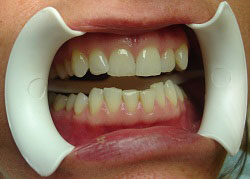
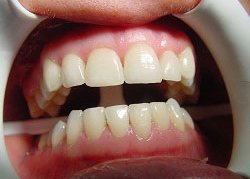
Following the final fitting
Keeping porcelain veneers clean is of high priority. Although cavities cannot be formed on veneers, teeth underneath can easily have caries. It is definitely worth keeping the dentist’s advice on how to keep them clean. Porcelain veneers resist discolouration caused by food, however it is better to avoid or decrease the amount of coffee, tea and red wine consumption.
The lifetime of dental veneers is different in each patient’s case. It can be determined based on genetics and the quality of oral hygiene. Generally this is between 8-12 years; however, appropriate lifestyle and proper oral hygiene can increase its lifetime. Veneers have to be changed after they are worn out.
Ask for an appointment now and get a perfect, self-conscious smile!
